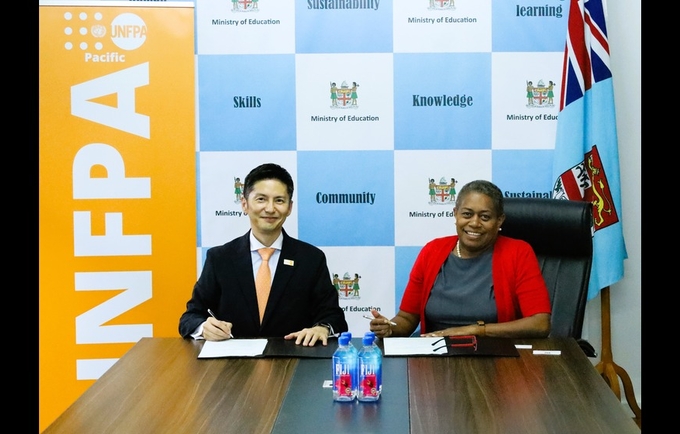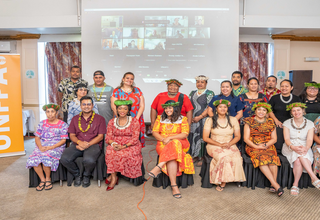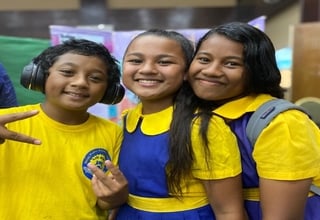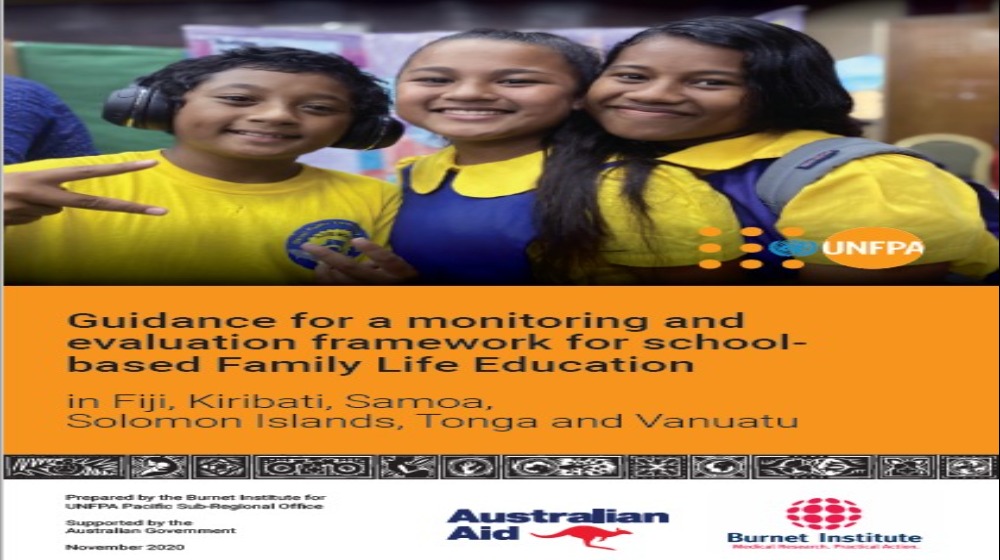SUVA, Fiji – The United Nations Population Fund (UNFPA) Pacific and the Fiji Ministry of Education (MOE) achieved a significant milestone on 21 February when both signed the Implementing Partner (IP) Agreement. This Agreement forged under UNFPA Pacific’s Multi-Country Programme (2023-2027) will enable UNFPA to formalize its assistance to MOE’s on-going efforts at rolling out the Family Life Education (FLE) programme based on the international standards in Years 4 to 12 across all the 736 primary and 176 secondary schools in the country.
“The Ministry of Education welcomes this partnership with UNFPA,” said Hon. Permanent Secretary for Education, Ms Selina Kuruleca, as she signed the IP agreement at the Ministry with UNFPA Director for the Pacific and Representative in Fiji, Iori Kato.
The FLE programmes can provide students with opportunities to learn and practice ‘life skills’ such as communications, relationship, negotiation, critical thinking, decision-making, and other dimensions. “Family Life Education is critical for the children in Fiji in developing knowledge, skills, attitude and values that are critical for them in making sensible and responsible decisions and choices about their physical and mental health and overall lives. The Ministry of Education, through this programme with UNFPA support, will further enhance the on-going FLE programme in school, also by revising the FLE curriculum to be aligned to international standards,” Hon. Education Secretary Ms. Kuruleca highlighted.
The signing of UNFPA’s Implementing Partner Agreement with the Fiji Ministry of Education was for the first time in 16 years. “Life skills that young children in Fiji learn through FLE will help them cope with some key issues that they may encounter, and avoid bullying, violence, psychosocial distress, substance abuse, and unintended pregnancy so that they can stay in school,“ said UNFPA Pacific Director Kato. “UNFPA is therefore thrilled with this revamped partnership with the esteemed Education Ministry of Fiji, and looks forward to contributing to MOE’s endeavor to support young people in Fiji in navigating their transition from childhood and adolescence, to become healthy, responsible and productive citizens.”
UNFPA, as part of its current Pacific Multi-Country Programme, with funding support from Australia’s Department of Foreign Affairs and Trade (DFAT), is providing financial and technical support to nine (9) Pacific small island countries including Fiji, in rolling out the FLE programmes both in and out of school, based on the UNESCO international standards on Comprehensive Sexuality Education (CSE) adapted to the Pacific regional and each individual country context.




